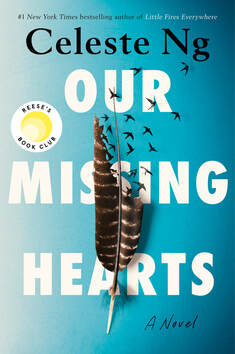| Twelve-year-old Bird doesn’t know why his mother disappeared three years ago. He doesn’t know why he and his father had to move from their large house to a tiny flat at the university, nor why his father lost his prestigious academic job. It can’t have anything to do with PACT, can it? The Preserving American Culture and Traditions Act was introduced to rescue the USA from the economic and social crisis around the time that he was born. |
I found the premise depressingly credible: the scapegoating; the complacency of those not directly affected; the suppression of opposing points of view. However, I’d have welcomed more subtlety in Bird’s early disillusionment as he learns part of the truth from the more worldly Sadie. But I gradually began to care for the characters caught up in this nightmare and to admire their attempts to put things right.
American readers will no doubt find echoes of the forced assimilations of Indigenous children, the underground railroad and the antagonism towards Chinese citizens during the Covid pandemic. British readers might be reminded of how criticism of Brexit was cast as disloyalty and how the policy of creating a hostile environment for migrants led to some Caribbean-born citizens illegally losing their benefits and threatened with deportation (which features in my novel Lyrics for the Loved Ones).
In her recent post with this week’s flash fiction challenge, Charli Mills suggests official complaints are increasingly discouraged. I’m not sure I agree. My impression is that complaints departments are relatively easy to access nowadays; the block is in getting a satisfactory result. Apologies are ten a penny, but worthless if practice doesn’t change.
| As I’m currently awaiting the result of my complaint to the NHS ombudsman about my GP’s inadequate response to my complaint about his tardiness in assessing what turned out to be kidney disease, I’ve indulged myself with a BOT. It’s not as clear as I’d like it to be: the complexities are hard to squeeze into ninety-nine words. |
She was lucky to get an appointment; a diagnostic blood test was sheer greed. “It’s not an emergency. Come back in a couple of weeks.”
Past midnight in the hospital, they frowned at her results. The damage was so obvious, even her addled brain could understand.
Between the scans, biopsies, injections and transfusions, she rattled the keyboard of her laptop, setting out her case. Unless she flagged her GP’s complacency, he might make the same mistake again.
Convalescing, mourning her lost identity as healthy, a letter from the GP. What would he now do differently? Nothing. Nothing at all.
























 RSS Feed
RSS Feed





















